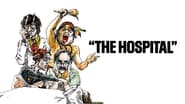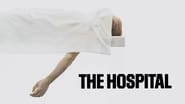gavin6942
An over-burdened doctor (George C. Scott) struggles to find meaning in his life while a murderer stalks the halls of his hospital.Although the film was not quite as funny as I think it could have been, it still has its moments and successfully makes a scathing attack on the medical system. Today (2017) the attack is no less potent, so the film has really stood the test of time. The writing is superb, and there is no surprise that it took home so many awards on the script.George C. Scott is excellent, as always, and Diana Rigg makes her American debut. Her character is unusually flaky and may not be to everyone's liking. The mystery aspect is quite fun, though it does not seem that enough clues are given for the audience to make any sort of informed guess.
Rockwell_Cronenberg
An okay film that is mostly served as a podium for a phenomenal performance to be delivered to the masses. Paddy Chayefsky's script is loaded with hilarity and some strong monologues for the actors to devour (which they gladly do), but there's a lot going on and director Arthur Hiller doesn't quite know what to do with the tone, but George C. Scott's performance is one for the ages. He plays a suicidal doctor in the world's worst hospital, which is surrounded by lawsuits, protesters and utter incompetence. There's tons of stuff happening and it doesn't all come together fluidly, but it mixes in plenty of hilarious moments without ever straining too far into broad comedy territory.Scott is definitely the primary thing going for it though, a towering force of expert comedy and drama that does what I wish the entire film had done. He's a great straight man for all of the madcap disasters happening throughout the hospital, and his suicidal rampages walk that fine line of being comedic and darkly intimidating at the same time. There's a scene between him and Diana Rigg where she tries to seduce him and he ends up going into a very dark reservoir of his mind that is haunting and terrifying. He devours everything around him, a wrecking ball of frustration with the world and he shines strong when delivering the impressive Chayefsky dialogue. The film itself doesn't quite hit the mark it's going for, but it's certainly still a worthwhile experience, elevated by the superb performance from Scott and Chayefsky's writing.
jbartelone
The Hospital is a movie that was made ahead of its time. This film, produced by screenwriter Paddy Chayefsky, who gave us the Oscar-Winning film, "Network", deals with overworked staff, gross incompetence, and bureaucratic corruption at a large conglomerate hospital in Manhattan. George C. Scott, in a superb performance as the head physician, is driven to alcoholism and a death-wish, as he tries to recover from a divorce, throwing his son out of the house, and worst of all, a medical facility where corruption and incompetence take precedence over caring and healing of the sick and injured.Mr. Scott makes the movie his own, and viewers will be shocked at what they observe at this medical establishment. You can feel the "pain" (pun intended) of what this hospital has done to him. The vivid images of this hospital's incompetence are so vivid and dramatically powerful that you may find yourself laughing and being deeply disturbed from scene to scene.If only the film had stayed with that premise in a documentary style fashion as it starts out, this picture would be brilliant. Unfortunately, there is a sub-plot of Scott falling for the daughter of a senile patient. The patient has been murdering people at the hospital. This is where credibility of the picture becomes strained. The romantic dialog scenes add nothing to the picture, and the mental patient, posing as a doctor, I found to be totally unbelievable. A simple security call and records check should have prevented the senile patient from doing the killings. It takes almost the whole movie, before security people are brought into the film to get the patient out of the hospital. I could not see ONE PERSON doing that much damage, even as corrupt as this hospital is.Furthermore, George C Scott's character is "overworked" (another pun intended) because the script has too many things happening at once. For example, within a period of 20 minutes, you could have as many as 20 different doctors accused and denying what they should have done or didn't do. With the nurses and aids, it's the same story. Someone's chart was read wrong, someone was given the wrong medication and died, the doctor operated on the wrong patient, than another doctor does the same thing, blaming a third nurse who was not on call because the second nurse who was supposed to be admitting the patient was on her coffee break. There is also a lot of subtle, dark humor with the same messages of incompetence and corruption being fed to the viewer.This repetition of medical ineptness is unforgettable. However, the murder subplot is a distraction more than a help to this movie. When the focus of this film is on the incompetence of the staff and Scott's reactions to this, you are glued to the screen. But the conversations between Scott and the mad patient's daughter force the film into a mystery type "Who Done it?" scenario that seriously hurts the quality of the movie. When the loony patient is revealing how he did the killings, I wondered the following: Why did the producers need the "find the killer" mad-patient sub-plot? I think the only point of Scott's character having a relationship with the senile patient's daughter, was to give him anybody with whom to communicate. The Hospital should have maintained its scathing indictment of the medical profession by removing the love-interest and mad patient scenes. It should have focused on the incompetent B.S within its walls more frequently. In an era where this movie could have been phenomenal, the sub-plot stories make the film very good instead of the great masterpiece it could have been.






